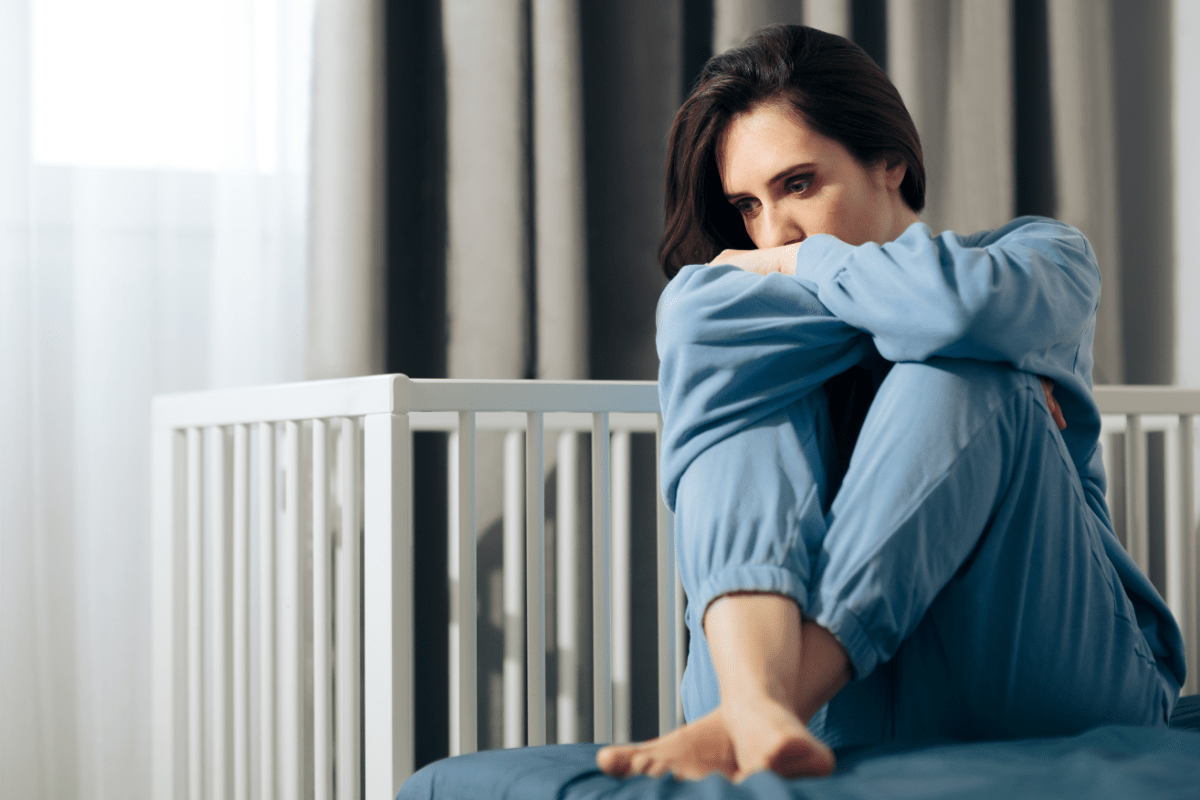Miscarriage is a deeply personal and often devastating loss that affects many families. Unfortunately, approximately 10-20% of known pregnancies end in miscarriage, with most occurring during the first trimester. However, a miscarriage at any stage of pregnancy can be devastating and distressing.
While these statistics help demonstrate how common miscarriage is, they don’t fully capture the emotional and psychological impact this loss can have on those who experience it. However, what about postpartum depression? Can you have postpartum depression after miscarriage?
Learn more about our postpartum depression treatment programs in Georgia or call us now at 770-994-6535.
What Is Postpartum Depression?
Postpartum depression (PPD) is a serious mental health condition that typically develops after giving birth.
It goes beyond the “baby blues” – the mild mood changes and anxiety that many new mothers experience in the first few weeks after delivery. PPD involves persistent feelings of sadness, hopelessness, and anxiety that can interfere with daily life and the ability to care for oneself or others.
Can You Have Postpartum Depression After A Miscarriage?
Yes, you can experience postpartum depression after a miscarriage.
While it’s not always recognized or discussed, the hormonal changes that occur after pregnancy loss, combined with the emotional trauma of the experience, can trigger depression similar to what mothers experience after giving birth. Research shows that up to 40% of women who experience a miscarriage report symptoms of depression in the weeks and months following their loss.
The term “postpartum” technically refers to the period after childbirth, but mental health professionals acknowledge that similar psychological responses can occur after pregnancy loss at any stage. The grief and hormonal changes associated with miscarriage can create circumstances that may lead to depression.
Signs of Mental Health Disorders After A Miscarriage
Common signs of mental disorders after miscarriage include:
- Persistent feelings of sadness or emptiness that don’t improve with time
- Difficulty concentrating or making decisions
- Changes in sleep patterns – either sleeping too much or experiencing insomnia
- Loss of interest in previously enjoyed activities
- Withdrawing from friends and family
- Feelings of guilt, shame, or self-blame about the miscarriage
- Intrusive thoughts about the loss
- Physical symptoms such as headaches or unexplained pain
- Changes in appetite or eating patterns
- Thoughts of self-harm or suicide
How Does Mental Health Impact A Pregnancy?
Mental health plays a crucial role in pregnancy outcomes and overall maternal well-being.
Untreated depression or anxiety during pregnancy can:
- Increase the risk of complications during pregnancy
- Affect bonding with future children
- Lead to unhealthy coping mechanisms
- Impact decision-making about future family planning
- Strain relationships with partners and family members
- Interfere with self-care and prenatal care in future pregnancies
It’s essential to address mental health concerns both for current well-being and for the health of potential future pregnancies.
How To Cope With Depression After A Miscarriage
Healing from both the physical and emotional aspects of miscarriage takes time and support. Here are effective coping strategies:
- Allow yourself to grieve: Recognize that your loss is real and valid, regardless of how early in the pregnancy it occurred
- Share your feelings: Talk with your partner, trusted friends, or family members about your experience
- Join a support group: Connect with others who have experienced pregnancy loss
- Practice self-care: Focus on basic needs like proper nutrition, rest, and gentle exercise when physically ready
- Create remembrance rituals: Find meaningful ways to acknowledge and remember your loss
- Maintain communication with your healthcare provider: Regular check-ups can monitor both physical and emotional recovery
- Consider postponing major decisions: Give yourself time to process the loss before making significant life changes
- Practice mindfulness or meditation: These techniques can help manage anxiety and overwhelming emotions
- Seek professional help: Work with a therapist who enter a treatment program that specializes in pregnancy loss and grief
Find Depression Treatment Today
If you’re experiencing symptoms of depression after a miscarriage, know that help is available. Treatment options include:
- Individual counseling or therapy
- Couples counseling to help navigate the loss together
- Support groups specifically for pregnancy loss
- Residential or outpatient programs depending on the severity of your depression
- Medication when appropriate, prescribed by a qualified healthcare provider
- Holistic approaches such as acupuncture or massage therapy
- Crisis intervention services if needed
At Kingston Wellness Retreat, we understand that depression is a life-threatening and debilitating mental health disorder that can impact all aspects of your life. Remember that seeking help is not a sign of weakness but a step toward healing.
Your feelings are valid, and you deserve support during this difficult time. Our depression treatment options in Georgia can help you create change and find peace in your life. Call us now at 770-884-6535 or verify your insurance now.





